5 Ways to Crack Windows XP Administrator Password
There is a wide variety of operating systems, but Microsoft OS Covers more than 70% of the OS market. Windows XP was launched as a part of NT family computer systems. XP was launched on 24 Aug 2001, with a wide range of new features and functionality such as IPv4 support, more stability, enhanced GUI, improved imaging features such as Windows Picture and Fax preview, enhanced image and thumbnail caching in Explorer. It can run smoothly over a machine with 128 MB RAM on the other hand Windows 7 requires at least 700MB RAM for smooth functioning.
Windows XP was released in two major editions, Home Edition and Professional Edition. Passwords act as a key that opens the door of sensitive data and user information. So many people have set passwords for their computers.
SAM, Security Accounts Manager, contains all the password of accounts in encrypted form. These files cannot be decrypted as they have one-way encryption but they can be accessed offline to reset the passwords. The net user command is used to add, remove, and make changes to the user accounts on a computer, all from the Command Prompt and we'll use this command to change the system's accounts password.
But What if we just forget the passwords? So, below are 8 ways starting from easy to moderate level to crack or reset the Windows XP administrator password.
Method 1: XP Hidden Administrator Account
1. Windows XP comes with a hidden Administrator account which can be accessed by following ways so that the lost password of other admin accounts can be changed from this default Administrator Account. On the Windows XP login screen panel, hit Ctrl+Alt+Del twice after that a login panel will pop up. Just enter the user name as Administrator and hit enter.
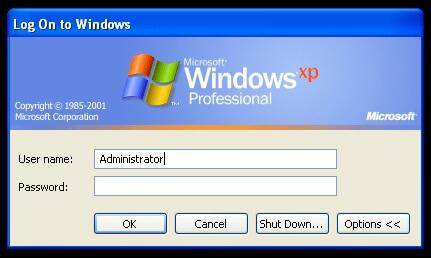
2. While you are logged in as admin and you need to change any user account passwords just go to the Run window and type cmd. Now enter net user and then hit enter. It will show all users on this machine.
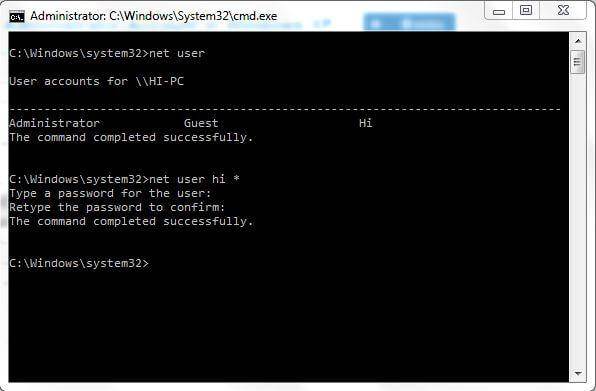
3. Now enter net user [account_name] *
Eg: net user hi *
It will ask for a new password, and then you can enter a new one as your wish. From the next login, you will have to enter this password for the respective account.
Method 2: Through Safe Mode
Restart the system press the F8 key to boot in safe mode from there log in Administrator Account without a password. This is an easy way and mostly works if the default hidden administrator is not changed.
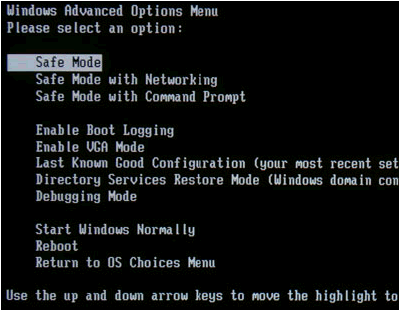
Method 3: Using Windows XP-bootable Disc
1. Select Boot from CD option from BIOS menu and insert a bootable disc, just press any key when prompted like "Press any key to boot from CD".Follow the Setup procedures and accept the license agreement by hitting F8.
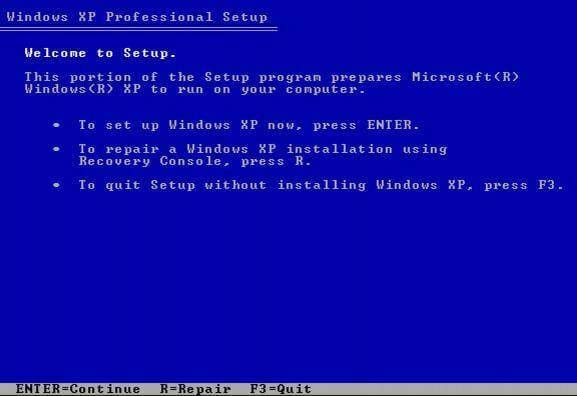
2. Use arrow keys to select XP installation (if you only have one, it should already be selected) and press R to begin the Repair process. After successful completion of repair windows will restart and again will display "Press any key to boot from CD".
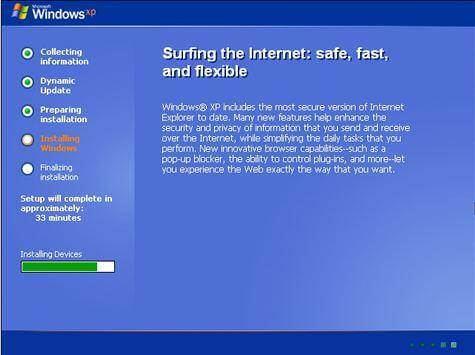
3. Just don't do anything, and it will boot automatically now when you see Installing Device Bar in the lower left bottom corner. Press Shift+F10 this will open the console now.
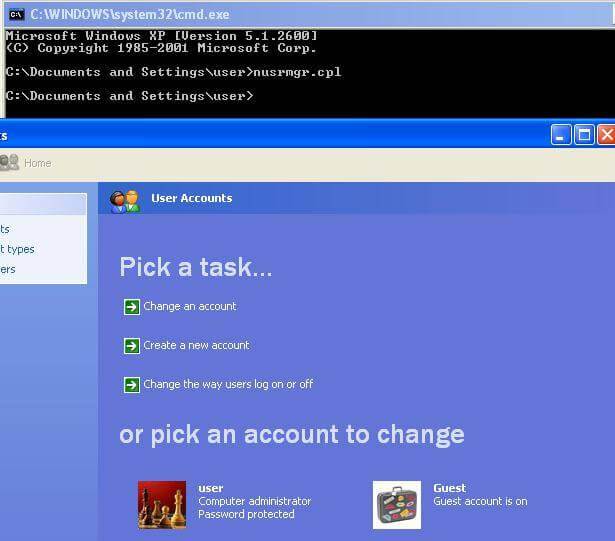
4. Write command nusrmgr.cpl. To edit passwords or remove them, you can also type Change userpasswords2 in the console to add a new user with any password. Now log in with new credentials after the repair process completes successfully.
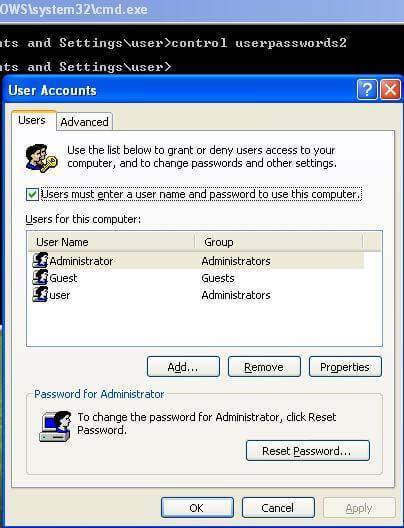
Method 4: Using Regedit
1. Once you get the console type Regedit.
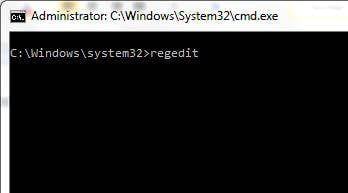
2. This will open the registry menu now navigate to HKEY_LOCAL_MACHINESOFTWAREMicrosoftWindows NTCurrentVersionWinlogonSpecialAccountsUserList in the Registry Editor.

3. Now double click Administrator option in the right panel. But if it is not there then do right-click in the right-side panel and select a new Dword and name it as Administrator and hit enter. Then do a double click on the newly created option and enter the value to 1 and press Ok.
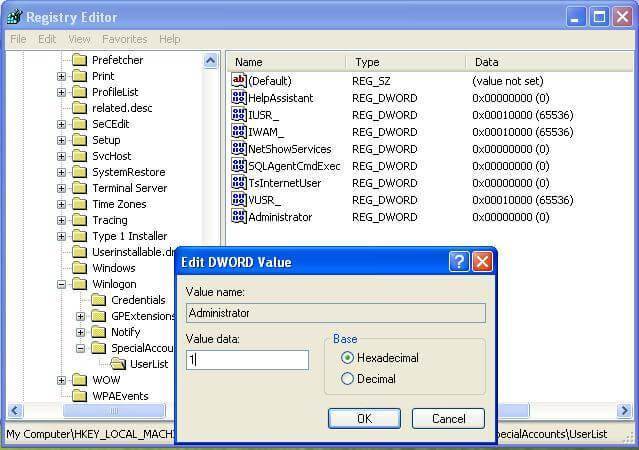
4. Now restart the window you will see a new Administrator user login without a password and make it to change the password of the lost account.

Method 5: Using Regedit again
1. Once you get the console type "Regedit" (command for opening Registry) and press Enter. From now on we have to be extra careful as one mistake might degrade our operating System and make it unusable. On the left side of the Registry Editor click "HKEY_LOCAL_MACHINE" then in the File menu click "Load Hive".

2. Now Browse for the Following path: Windows Os drive[c]:windowssystem32configSAM
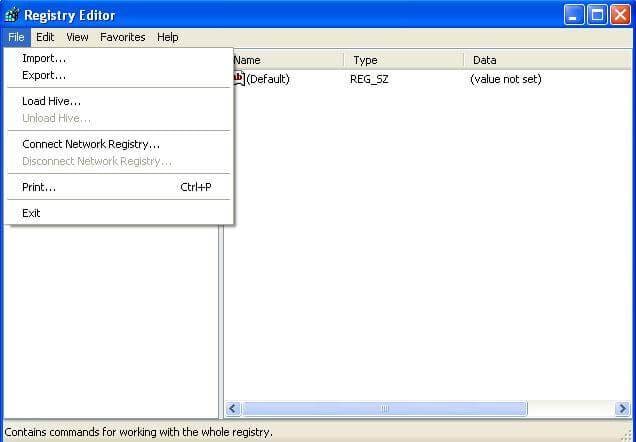
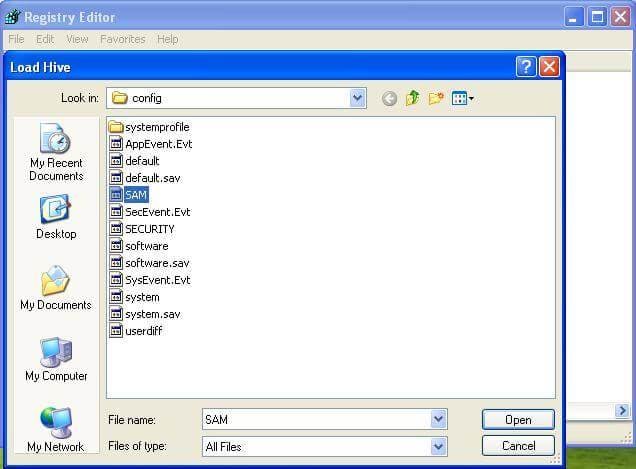
Note: This SAM file stands For the Security Accounts Manager, which is responsible for managing all credentials of system accounts so it contains encrypted information about the account names and passwords.
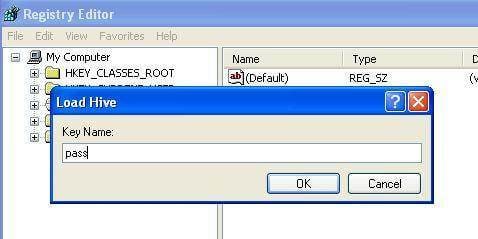
3. After loading the Hive, it will ask for a name, type anything you can remember. In my case, I will give the name "pass". So now the SAM file is loaded into the registry for editing.
4. Now go to the following directory "HKEY_LOCAL_MACHINE estSAMDomainsAccountUsers". Click on "000001F4" and from the right-side panel double-click the "F" entry.
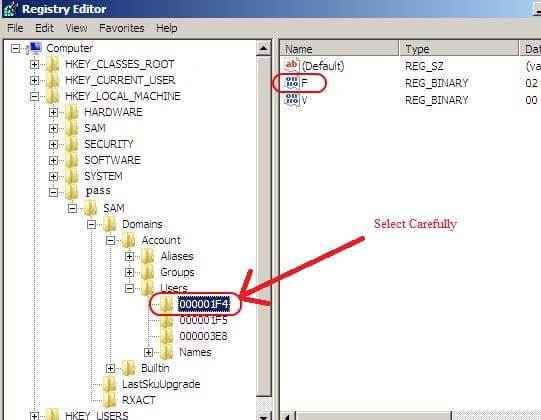
5. A new window will open and you can edit the "F" entry. The line that starts with "0038" is what you want to edit. The value next to "0038" is "11", replace it with "10". Be careful not to change anything else. Just double click the "11" and type "10" then hit the OK button. "11" is for disabled and "10" for enabled.
6. Back in the Registry Editor, from the left side click on the name you gave to the hive you loaded earlier and click "Unload Hive" from the file menu, restart the computer, and you are done. The Administrator account is now enabled.
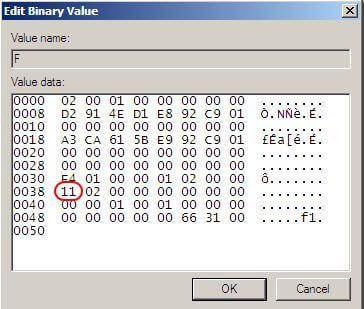

- Recover Word documents from all storage devices like Mac.
- Recover 1000+ types and formats of files in different situations.
- Scan and preview the files before you recover them from MacBook hard drive.
Computer Data Recovery
- Windows PE
- System problems
- PC Errors



















 ChatGPT
ChatGPT
 Perplexity
Perplexity
 Google AI Mode
Google AI Mode
 Grok
Grok























David Darlington
staff Editor